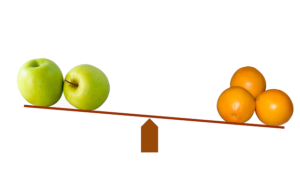
Several months ago, I saw a stage adaptation of Charles Dickens’ Great Expectations. Presented by a small cast with very little set design and minimal props, the play accurately conveyed the story of Pip, an orphan who was given a chance to move beyond humble beginnings. Although the story line is complex, one thing that stood out was Pip’s inability to be content once aspiration and expectation took over.
Contentment is a commodity that is in short supply in today’s world. We’re often restless, comparing ourselves to others, wishing away a current situation that is difficult or unpleasant, or looking with longing to the next opportunity, acquisition, accomplishment, or accolade.
Following are some thieves of contentment:

Comparisons
We all make comparisons every day. If we’re not comparison shopping, we’re comparing ourselves to others—their dress, looks, achievements. But if you’re not careful, comparisons distract, disillusion, confuse, and change you. Comparing yourself to others leads to dissatisfaction and halts forward motion. Instead of working to be like someone else, be who you were created to be. Recognize your unique gifts and talents. Acknowledging limitations. Challenge yourself, but within reason. Celebrate personal victories. Don’t let comparisons drive you to be someone you aren’t.

Envy
Envy is a green-eyed monster that robs you of joy and contentment and creates an attitude that can sour our whole outlook on life. Envying the lives of others is a dead-end street. No matter how perfect the lives of other people appear, you can be sure they have difficulties of which you simply aren’t aware. Social media paints perfection, but if you saw a true picture, your wish to be like them might evaporate. Look for ways you are blessed and give thanks.

Competitiveness
Our world teaches competitiveness. Children are thrust into competitive sports almost as soon as they can walk. Work and home environments breed competition. Winning becomes the sole focus for many, and their self-worth is so tied to victory that losing equals devastation. Taming competitiveness is similar to curbing addiction, but with effort, contentment can triumph over competition.

Assumptions
Often we assume our lives are going to follow a projected path based on past experiences or a plan we’ve mapped out for ourselves. But when assumptions are sidetracked by circumstances we often are discontent with the new direction. Initially, it’s difficult to see the benefits in redirection, but look for them. Your plan is not always the best one. Learn to be flexible, even when it feels like the train is running off the rails.

Expectations
Perhaps the modern-day term for expectations is entitlement. Expectation is always greedy for more, aspiring to acquire or achieve something greater. Sometimes an internal drive fuels aspiration, while expectation demands assurances. When expectations aren’t fulfilled, people often blame external circumstances, and others, instead of taking personal responsibility.

Contentment appreciates, expresses gratitude, and experiences peace. Beyond that, contentment is a choice. When the world entices you to compare, compete, and want more, choose contentment.
“But godliness actually is a source of great gain when accompanied by contentment [that contentment which comes from a sense of inner confidence based on the sufficiency of God.] For we have brought nothing into the world, so [it is clear that] we cannot take anything out of it either. But if we have food and clothing, with these we will be content.” 1 Timothy 6:6-8 AMP
©CandyArrington

